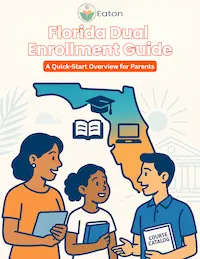FES-UA Scholarship Funding: The Ultimate Guide
For homeschooling families, Florida’s expansive scholarship system can be both exciting and a bit overwhelming. Among these programs, the FES-UA Scholarship Funding structure (Family Empowerment Scholarship for Students with Unique Abilities) stands out for its ability to provide personalized educational support, therapies, tutoring, and more. Below, you’ll find everything you need to understand about eligibility, award calculations, and how to leverage these funds for a rewarding homeschool experience.
Why FES-UA Scholarship Funding Matters
The “UA” in FES-UA Scholarship Funding refers to “Unique Abilities,” signaling this scholarship’s focus on supporting students with particular educational or developmental needs. Key benefits include:
- Flexible Spending: Cover private school tuition, instructional materials, testing, therapies, or tutoring – all from one account.
- Family Empowerment: Parents retain the ability to customize their child’s learning path, choosing the best services for that student’s unique goals.
- Long-Term Impact: FES-UA funds can help ensure consistent progress over the entire academic year, with proration or partial-year adjustments made if you enroll late.
If you’re new to Florida homeschooling, you might also review Homeschool Florida: Your Ultimate How-to Guide to get a broader sense of how this scholarship integrates into state requirements.
Who’s Eligible for FES-UA Scholarship Funding?
According to the State of Florida, students seeking FES-UA Scholarship Funding must meet at least one of the following criteria:
- Unique Abilities/Diagnosis: Students with certain diagnoses outlined by Florida law.
- IEP Documentation: An Individualized Education Program (IEP) that demonstrates unique learning requirements.
- Age & Residency Requirements: Children must be under 22 years old, live in Florida (or be a dependent of active-duty U.S. military with PCS orders to Florida), and be at least three years old by December 31 of the application year.
Because these criteria can be nuanced, families often consult the Florida Department of Education website for authoritative guidelines or explore How to Get a Step Up Scholarship for Florida Homeschoolers to understand the general application process.
How FES-UA Scholarship Funding Is Calculated
FES-UA Scholarship Funding typically depends on three major factors:
- Grade Level
- Funding levels differ between pre-K, elementary, middle, and high school students.
- County
- Scholarship amounts adjust based on your local district’s average per-student education costs.
- Matrix Level (If Applicable)
- Students with an IEP receive a matrix level from 1 to 5 (also known as 251–255). The higher the level, the more funds allotted to address specialized supports.
Parents of students with advanced matrix levels (4 or 5) may see a substantially higher scholarship award than those whose children are documented with less-intensive needs. For a deep dive into Florida’s official calculations, consider visiting EdChoice for comparative data across states, or referencing the local district finance pages for how special education funds are typically allocated.

FES-UA Scholarship Funding Proration
One of the biggest points of confusion is how FES-UA Scholarship Funding changes when you don’t enroll at the beginning of the academic year:
- Full Funding: If awarded by late October (usually around October 25), you get 100% of your child’s scholarship amount.
- Half Funding: If your student joins by late January (around January 25), you’ll get 50%.
- No Funding: Missing the January deadline usually means no scholarship for that school year.
Life can be unpredictable—especially if you’re switching from public school mid-year. However, partial-year proration prevents wasted funds in case you decide to enroll later or if your child’s circumstances change.

Scheduling & Distribution of FES-UA Scholarship Funding
Funds are deposited quarterly into each student’s account, with specific cycles often set for:
- August 1 (renewal students)
- September 1 (new students)
- November 1
- February 1
- April 1
While these are the primary disbursement dates, Step Up For Students (the Scholarship Funding Organization) sometimes issues supplemental payments if a family misses a cycle. Once funds appear in your child’s scholarship account, you can either pay providers directly via EMA (Education Market Assistant) or submit for reimbursement if you paid out of pocket.
Maximizing FES-UA Scholarship Funding for Homeschooling
Even though Florida’s homeschool laws allow for considerable freedom, the FES-UA Scholarship Funding adds an extra layer of possibility:
- Targeted Therapy: If your child benefits from occupational therapy or speech therapy, these costs can be directly covered—provided you’re using an approved provider with correct credentials.
- Tutoring & Curriculum: Struggling with advanced math or reading? Hired a certified tutor? You can potentially direct scholarship funds to cover those sessions.
- Partial Private School Enrollment: Some families opt for a “blended” approach, paying a private school for certain classes (e.g., lab sciences) while continuing core subjects at home.
For practical tips on weaving specialized classes or therapy sessions into your daily routine, see Best Homeschool Schedule: How Many Hours Does It Take? and adapt the methods to your child’s unique needs.
Common Roadblocks in FES-UA Scholarship Funding
Understanding how the scholarship works doesn’t eliminate every potential pitfall. Here’s what to watch out for:
1. Overpayments & Adjustments
If you transfer schools mid-quarter or if a provider is overpaid, Step Up For Students may adjust future payments. It’s wise to keep track of tuition balances and any partial-year changes to avoid confusion.
2. Provider Credibility
Some families discover a great local tutor or therapy provider—only to find they’re not credentialed according to Florida’s rules. Confirm eligibility through official provider directories or by asking them to share their certification details.
3. Documentation & Deadlines
Deadlines for evaluations, standardized testing (grades 3–10 in many cases), or quarterly scholarship distributions can sneak up on you. Mark them on your calendar early. If you’re not sure how standardized testing fits in, read Florida Homeschool Evaluations: Everything You Need to Know.
Simple Steps to Manage FES-UA Scholarship Funding Through EMA
EMA (Education Market Assistant) is your portal for verifying scholarship balances, paying providers, and requesting reimbursement:
- Create an EMA Login: Follow the instructions in How to Set Up an EMA Account for Florida Scholarships.
- Link Approved Providers: Ensure each tutor, therapist, or private school has the required credentials.
- Check Quarterly Deposits: Monitor that funds arrive on schedule. For example, renewal students often see disbursements around August 1, while new students might see them by September 1.
- Submit Reimbursement Requests: If you pay costs out-of-pocket, keep all receipts and upload them promptly to EMA.
- Stay Compliant: If you switch or withdraw your child from a private school, withdraw in EMA so your next quarter’s payments aren’t delayed or misapplied.
If you’re also considering the Florida PEP scholarship or other programs, see Florida Scholarship Programs: FTC, FES-EO & PEP for a full overview of scholarship categories.
Reimbursement or Direct Pay? Deciding What Works
You have two main options for covering FES-UA-authorized expenses:
- Direct Payment: The service or school invoices your child’s account through EMA. You simply approve the invoice after services are rendered.
- Reimbursement: Pay upfront, then submit proof of purchase to Step Up For Students. This might be faster for certain smaller expenses (e.g., specialized workbooks or end-of-year testing fees).
Whichever you choose, just ensure you’re dealing with legitimate, approved services or providers. For more about covering costs legally, check out How to Use Florida Scholarship Funds Legally.
External Resources for More Insight
In addition to the Florida Department of Education, the following authoritative resources can help you keep current:
- U.S. Department of Education: Provides federal-level updates and guidance for special education programs nationwide.
- Council for Exceptional Children: Offers research-based resources for families supporting learners with unique abilities.
- National Center for Learning Disabilities: Shares detailed insights on learning disorders, IEP strategies, and family advocacy tips.
Combining these resources ensures you have a well-rounded perspective on how FES-UA Scholarship Funding can help your child flourish.
Ready for the Next Step? Join Our Online Homeschool Classes!
If you’re looking to augment your child’s curriculum even further—beyond the resources you can purchase through FES-UA Scholarship Funding—we invite you to explore our K–8 homeschool online classes. With flexible scheduling and expert instructors, we can help you tailor your child’s education plan to meet their interests and needs.
Sign up for a homeschool online class today!

Conclusion
When used effectively, FES-UA Scholarship Funding is a powerful way to individualize your child’s education, especially if they have unique abilities or special learning requirements. From specialized therapies and part-time private school attendance to advanced tutoring programs, FES-UA enables you to craft a truly custom homeschool experience.
Stay mindful of eligibility requirements, quarterly funding schedules, and any potential proration if you enroll after the school year begins. With a bit of planning and regular engagement on the EMA platform, you’ll be well on your way to creating an enriching, rewarding academic path for your child—one that truly celebrates their strengths and addresses their needs. Good luck, and remember that a wealth of Florida-specific homeschool guidance and resources are at your disposal to make this journey a success!



